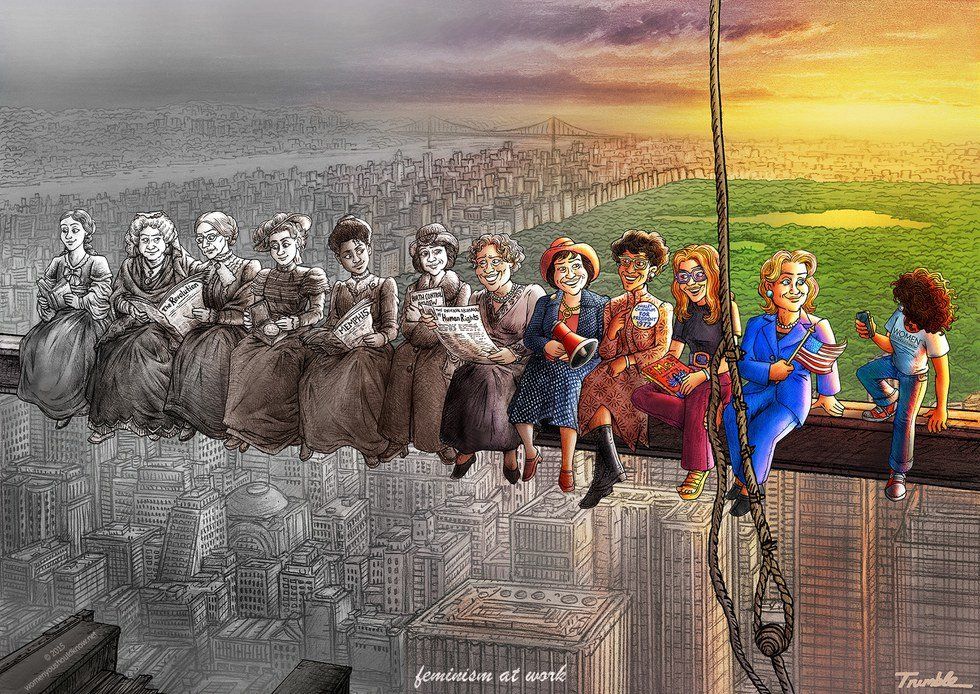Read part one of this series here.
Unlike many of the short stories Flannery O’Connor engendered, “Good Country People” turns its back on gender roles with one of the main characters, Hulga. The antithesis portrayed through Hulga and her mother does well to illustrate the difference between a character with undefined feministic ideals – “If you want me, here I am – LIKE I AM” – and characters trotting down the worn path of patriarchal hegemony – “Mrs. Freeman was a lady."
Long before the feminist movement of the 1900’s (and presently) O’Connor herself implemented a feminist way of thinking in both her short stories and her reality. Although the reactionary character emphasizing Hulga’s feminism may at first seem to be her mother, the Bible salesman, notably male and named; ‘Manley,’ highlights Hulga’s liberal standing. Keeping within the southern gothic genre, O’Connor gave Hulga a physical handicap – the wooden leg. Much earlier than the physical handicap was introduced, the societal handicap lurked in the exposition – the fact that Hulga was a woman. O’Connor portrays Hulga’s gender-linked disadvantage most obviously through the aggressive interloping of Manley Pointer. Pointer takes no care of the all-female environment he invades; rather, he manipulates the estrogen-filled atmosphere, and especially Hulga’s mother, to believe that he is just a simple man.
Hulga’s changing of her name from Joy at surface level may be interpreted as an act of rebellion; however, it reflects Flannery O’Connor’s own name change during her infant years as a writer. As O’Connor saw it, she was simply known as the little girl who, in her younger days, taught chickens to walk backwards. Not wanting to be associated with her childhood fifteen minutes of fame, she decided to create a serious writing persona for herself, beginning with her name change from Mary to Flannery. The similarity between Joy and Mary and the choosing of unconventional legal names does well to mirror O’Connor’s perception of herself within her writing of Hulga Hopwell.
Arguably, the inciting incident of the short story is the removal of Hulga’s glasses inside the barn. “When her glasses got in the way, he took them off of her and slipped them into his pocket," leaving Hulga blind to the truth and physically helpless once again, besides her wooden leg. Pointer, when stealing her glasses, in fact steals her individuality and freedom as a person and as a woman, much like patriarchal hegemony does to the efforts of feminism. Furthermore, before the meeting at the barn, Hulga compares Pointer’s smiles to the lake, commenting that, “His smiles came in succession like waves banking on the surface of a little lake” but when her vision is swiped from her, she only sees Pointer darting across the “green speckled lake."
Simple men seem to be a theme in Flannery O’Connor’s short stories. Whether the term ‘simple’ is meant sarcastically or to address the inferior is up to one’s own opinion; however, whenever a ‘simple’ or ‘good’ man is written in, the outcomes for the ladies take a terribly grave turn.



















